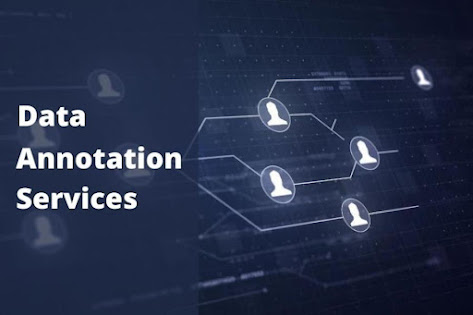Transforming Patient Care: The Role of ML Datasets in Healthcare
Introduction:
In recent years, the healthcare industry has witnessed a paradigm shift, with technology playing a pivotal role in transforming patient care. Among the various technological advancements, Machine Learning (ML) stands out as a key driver of innovation. At the heart of ML's success in healthcare are the datasets that fuel its algorithms. In this article, we will explore the critical role of ML datasets in healthcare and how they are revolutionising patient care.
The Importance of ML Datasets in Healthcare:
ML datasets are collections of data that are used to train and test machine learning models. In healthcare, these datasets can include patient records, medical images, genomic sequences, and other relevant information. The quality and diversity of these datasets are crucial for developing accurate and reliable ML models that can assist in diagnosis, treatment, and prognosis.
Advancements in Diagnostic Techniques:
One of the most significant impacts of ML datasets in healthcare is the improvement in diagnostic techniques. ML algorithms trained on large and diverse datasets can identify patterns and anomalies that may be invisible to the human eye. For instance, ML models trained on thousands of medical images can assist radiologists in detecting early signs of diseases such as cancer, leading to timely interventions and better patient outcomes.
Personalised Treatment Plans:
ML datasets also play a vital role in the development of personalised treatment plans. By analysing a patient's medical history, genetic information, and lifestyle factors, ML models can suggest tailored treatment strategies that are more likely to be effective for the individual. This approach, known as precision medicine, has the potential to significantly improve the efficacy of treatments and reduce adverse side effects.
Predictive Analytics for Preventive Care:
Preventive care is another area where ML datasets are making a significant impact. By leveraging historical health data and real-time monitoring, ML models can predict the likelihood of future health events, such as heart attacks or diabetic episodes. This allows healthcare providers to intervene early and prevent the onset of serious conditions, ultimately reducing healthcare costs and improving patient quality of life.
Challenges and Considerations:
While the potential of ML datasets in healthcare is immense, there are several challenges that need to be addressed. Ensuring data privacy and security is paramount, as healthcare data is highly sensitive. Additionally, the datasets must be representative of the diverse patient population to avoid biases in the ML models. Overcoming these challenges requires a collaborative effort from healthcare providers, data scientists, and policymakers.
Integration with Electronic Health Records (EHRs):
ML datasets are often integrated with Electronic Health Records (EHRs) to provide a comprehensive view of a patient's health history. This integration allows for real-time analysis of patient data, enabling healthcare providers to make informed decisions quickly. It also facilitates longitudinal studies, where patient outcomes can be tracked over time to assess the effectiveness of treatments and interventions.
Enhancing Telemedicine:
The rise of telemedicine has been accelerated by the COVID-19 pandemic, and ML datasets are playing a crucial role in its expansion. ML algorithms can analyze data from remote monitoring devices, such as wearable health trackers, to provide insights into a patient's condition without the need for in-person visits. This not only increases access to healthcare services but also allows for continuous monitoring of chronic conditions.
Drug Discovery and Development:
ML datasets are also revolutionizing the field of drug discovery and development. By analyzing vast amounts of biological and chemical data, ML models can identify potential drug candidates and predict their efficacy and safety profiles. This can significantly speed up the drug development process, bringing new treatments to patients faster.
Addressing Health Disparities:
ML datasets have the potential to address health disparities by identifying and addressing gaps in care. By analyzing data from diverse populations, healthcare providers can identify underserved groups and develop targeted interventions to improve their access to care and health outcomes.
Ethical Considerations:
As with any technology, the use of ML in healthcare comes with ethical considerations. It is important to ensure that ML algorithms are transparent and explainable, so that healthcare providers can understand the basis for their recommendations. Additionally, there should be safeguards in place to prevent discrimination and ensure that the benefits of ML are equitably distributed across all segments of the population.
Conclusion:
The role of ML datasets in healthcare is transformative, offering new possibilities for diagnostic accuracy, personalised treatments, and preventive care. As we continue to harness the power of these datasets, we can expect to see further advancements in patient care, making healthcare more efficient, effective, and equitable. The journey towards leveraging ML in healthcare is ongoing, but the potential impact on patient lives is undeniable.
How GTS.AI Offers Professional Solutions for ML Datasets in Healthcare Needs
Globose Technology Solutions (GTS.AI) is at the forefront of revolutionising machine learning (ML) datasets in healthcare. Their expertise in AI-powered solutions enables them to create, manage, and optimise ML datasets tailored to the unique demands of the healthcare sector. By leveraging advanced techniques and custom solutions, GTS.AI is transforming how healthcare organisations harness the power of AI and machine learning, paving the way for groundbreaking advancements and improved patient care.
.png)



Comments
Post a Comment